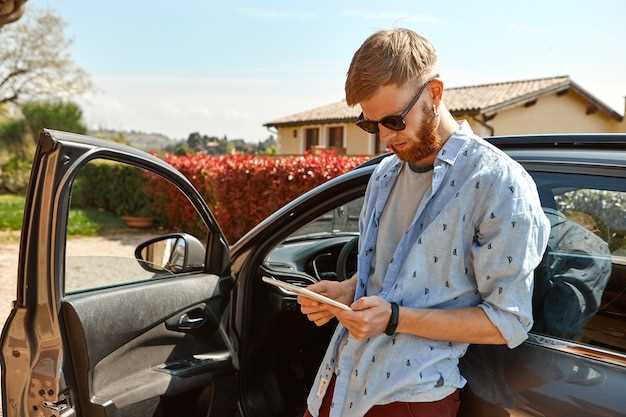How to Get Certified as a Classic Car Appraiser

Becoming a certified classic car appraiser is an exciting opportunity for automotive enthusiasts who want to turn their passion into a profession. Certification not only enhances your credibility in the market but also equips you with the necessary skills to accurately evaluate classic vehicles. This career path requires a blend of automotive knowledge, market awareness, and formal training in appraisal techniques.
The process of obtaining certification involves several key steps. First, you must familiarize yourself with the various appraisal standards and guidelines set forth by recognized appraisal organizations. This foundational knowledge will provide the basis for your understanding of how to assess a vehicle’s condition, historical significance, and market value.
Next, pursuing formal education or training programs specifically focused on classic car appraisal is crucial. These programs often cover essential topics, such as valuation methods, vehicle history research, and legal considerations related to vehicle ownership. Additionally, practical experience through internships or mentorship can significantly enhance your appraisal skills.
Finally, passing a certification exam is typically required to validate your expertise in classic car appraisal. Successfully achieving certification not only boosts your professional profile but also opens doors to various career opportunities within the classic car community, including insurance, restoration, and investment consultations. By following these steps, you can embark on a rewarding journey as a certified classic car appraiser.
Understanding Certification Requirements for Classic Car Appraisers
To become a certified classic car appraiser, individuals must meet several essential certification requirements that validate their expertise in vehicle valuation. The first step typically involves completing a recognized appraisal course that covers various aspects of classic cars, including market trends, valuation methodologies, and inspection techniques.
Certification programs often require candidates to have a certain level of experience in automotive sales, restoration, or appraisals. This prerequisite ensures that appraisers possess a foundational understanding of classic vehicles and their historical significance. Additionally, many organizations necessitate a minimum number of hours spent on practical appraisal work, allowing candidates to apply theory in real-world scenarios.
After completing educational requirements, aspiring appraisers may be required to pass a comprehensive exam that tests their knowledge of classic car valuation principles. This exam often includes identifying key features, assessing vehicle condition, and understanding market values. Successful completion of the exam is a crucial step toward obtaining certification.
Continuing education is another important aspect of the certification process. Certified appraisers must stay updated on market trends, legal regulations, and appraisal techniques. Many organizations recommend or require ongoing training to maintain certification, ensuring that appraisers remain competent in a constantly evolving industry.
Ultimately, obtaining certification as a classic car appraiser not only enhances an individual’s credibility but also signifies a commitment to professionalism and ethical appraisal practices. This certification can lead to greater opportunities within the automotive industry, including working with collectors, insurance companies, and auction houses.
Essential Skills and Knowledge for Accurate Car Valuation

To become a qualified classic car appraiser, possessing essential skills and knowledge is crucial for achieving certification and performing accurate valuations. Below are the primary competencies required:
- Automotive Knowledge: A comprehensive understanding of automotive mechanics, history, and technology is vital. This includes familiarity with different makes and models, as well as their unique features, performance capabilities, and historical context.
- Market Awareness: Staying informed about current market trends, auction results, and sales data helps appraisers gauge a classic car’s value accurately. Understanding regional variations and buyer preferences can also enhance valuation skills.
- Condition Assessment: Appraisers must be adept at evaluating a car’s condition. This involves inspecting the vehicle thoroughly, assessing its restoration quality, mechanical integrity, and overall preservation state.
- Documentation Skills: Appraisers should be proficient in documenting their findings systematically. This includes preparing detailed appraisal reports that outline the vehicle’s value and justifications based on collected data.
- Communication Skills: Clear communication is essential. Appraisers need to convey their findings to clients effectively, answering questions and providing insights regarding the valuation process.
- Legal and Ethical Knowledge: Familiarity with industry regulations, ethical standards, and legal requirements concerning vehicle valuation is crucial for maintaining professional integrity and trustworthiness.
- Networking: Building relationships with fellow appraisers, collectors, and industry experts can provide valuable insights and resources. Engaging with professional organizations related to classic cars can enhance one’s reputation and knowledge base.
Acquiring these skills through education, hands-on experience, and training programs can significantly enhance an appraiser’s competency, leading to successful certification and precise car valuations.
Navigating the Certification Process and Testing Procedures

Becoming a certified classic car appraiser involves a structured certification process that ensures aspiring appraisers possess the necessary knowledge and skills. This journey typically begins with thorough research to identify accredited certification programs offered by recognized organizations in the automotive industry.
Once a suitable program is selected, applicants must complete specific educational requirements. These often include coursework focused on classic car valuation techniques, market analysis, and appraisal methodologies. Candidates are encouraged to gain practical experience by working alongside established appraisers or participating in related internships.
After completing the educational component, candidates are required to submit an application for certification. This application usually necessitates proof of the completed coursework, professional experience, and possibly letters of recommendation from industry professionals. It is critical to ensure all documentation is accurate and submitted within the specified deadlines to avoid delays in the certification process.
The next step involves passing a comprehensive examination. This testing procedure evaluates a candidate’s understanding of classic car appraisal principles, legal considerations, and technical knowledge about vehicle restorations and historical significance. Study materials and practice tests are often provided by the certification program to help candidates prepare effectively.
Upon successfully passing the exam, candidates become certified classic car appraisers. This certification may need to be renewed periodically, requiring continuing education credits to ensure that appraisers remain current with industry trends and regulations. By navigating each step methodically, aspiring appraisers can achieve certification and establish themselves in the classic car appraisal field.



